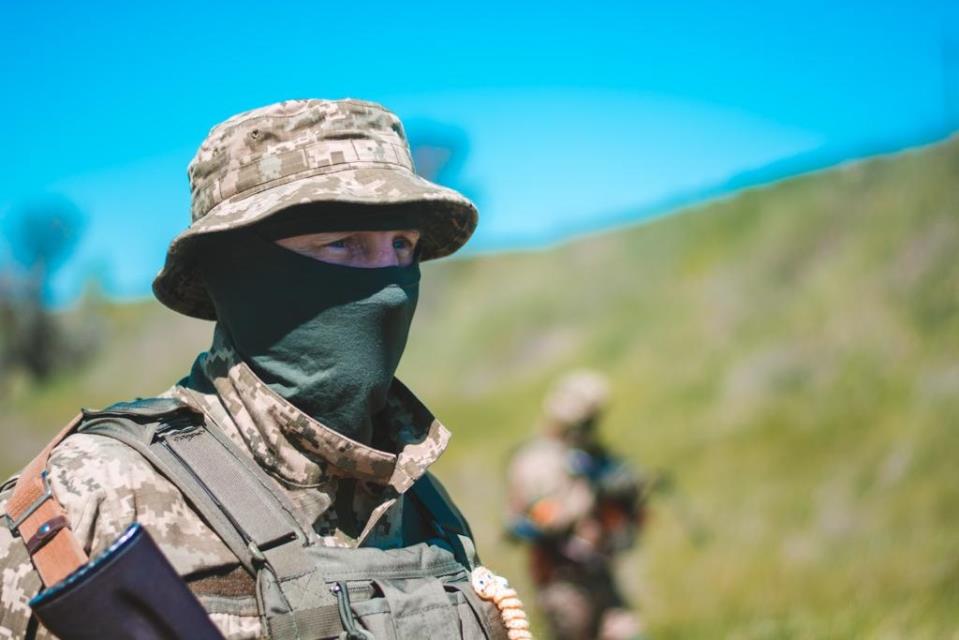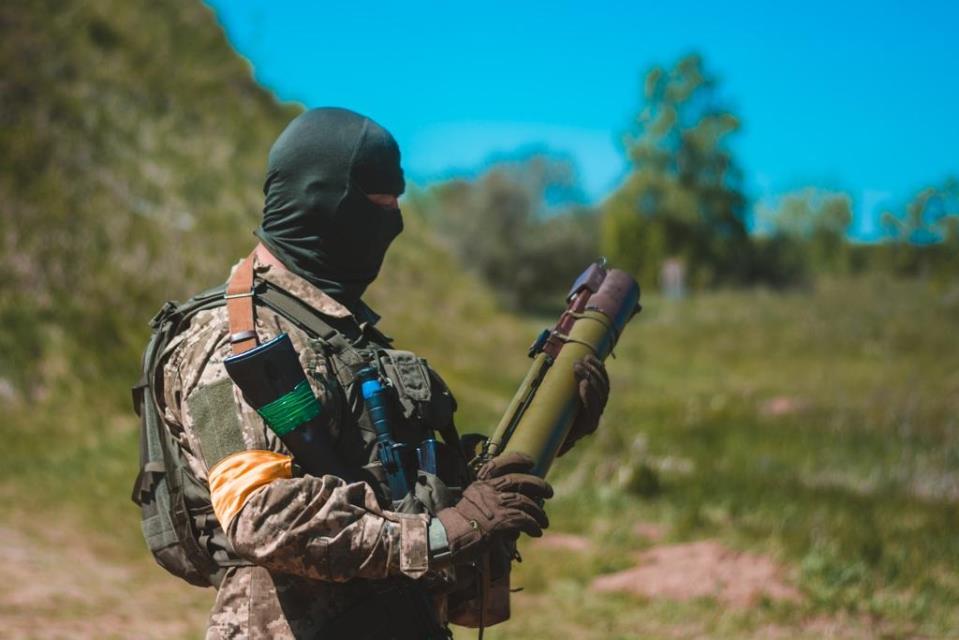Wilfred Owen had called it “the old lie”, as together with other doomed youth he stepped onto the front line in France, during World War I. The meaning of such an anti-war poem became even more evident to two Maltese journalists at the front line in Kharkiv, Ukraine.
The phrase “it is sweet and fitting to die for one’s country” was thrown around a number of times during their stay in a military base, a couple of kilometres from the front line, surrounded by the constant bombardment of artillery shells and the wailing of sirens.
Our journey in Ukraine has become personal. We have met with the people suffering the harsh effects of war, we have seen people butchered in the streets by Russian forces and, most importantly, we have experienced, for a short period of time, life on the front line.
Upon meeting with these soldiers, their story had to be told and this is the personal recount of what two Maltese journalists, who entered a war for the first time in their lives, saw and heard from the people still in Ukraine.

Kharkiv territorial defence, intelligence unit military base
As the curves of the cigarette smoke weightlessly climbed the twilight air in an undisclosed military base a couple of kilometres away from the Ukraine-Russia front line, muffled blasts of artillery shells and missiles of various makes can be heard in the distance.
To the two Maltese journalists surrounded by a unit of soldiers, these sounded eerily similar to village feast fireworks going off in the distance; the only difference was that they were in the middle of a war, a couple of kilometres away from the front line where the Ukrainian people were taking a stand and defending their country from the Russian aggressor.
It is May 2022 and no one could believe that in the 21st century, the invasion of a sovereign country could still occur. This was the journalists’ second tour of Ukraine since this part of the war began on 24 February.
The stats of the war are already horrifying with over 10 million people displaced, more than 8,000 civilians severely injured, 261 dead children and over 4,000 adults dead due to war crimes carried out by the Russians.
Throughout their first press tour in Ukraine, the journalists visited the villages of Irpin and Bucha and saying that these cities were ravaged by Russians is a gross understatement.
The number of innocent lives lost in these villages will definitely leave a scar on their families and the fellow Ukrainian soldiers who had to pick them up and send them to their graveyards.
Throughout the second press tour, the journalists focused on the east of the country, spending more than a week in Kharkiv while also being embedded with an intelligence unit within territorial defence of Kharkiv.
This unit had the sole task of gathering intelligence of Russian forces. This meant that they had to go beyond the front line, into no man’s land and conduct reconnaissance missions without being discovered.
The journalists met the commander of this unit in a dimly lit basement as he rested on a roughly made bed between deployments. His gun, boots and bag lay beside his bed as though they were keeping watch until he wakes up.
At one point Igor, the soldier who the journalists would later find out is the commander of the intelligence unit, woke up and opened a packet of cigarettes. He put one in his mouth, revealing a hand covered in bandages presumably due to injuries sustained at the front line. He then removed his jacket only to showcase a mural of scars and displaced skin on his torso leading down to his hands. One could immediately tell Igor was not only a soldier but the prodigal son of the god of war.
The journalists would later find out that Igor had been serving since the invasion of Russia on Crimea. Crimea is a “small” peninsula south of Ukraine which was invaded by Russia in 2014. The common element in Igor's life for the past eight years at least was Russia’s extensive history of invading foreign countries.
Eventually, an arrangement was made with Igor and the following day he took the journalists to the base of this intelligence unit where they would spend the next couple of days living the experience of volunteer fighters first hand.
Igor picked up the journalists late in the morning. He was a man of few words and very reserved. Wherever he looked, his concerned face was too prevalent to miss and, as he drove the uninhabitable roads of Kharkiv, a sense of tension started to rise. He stopped at a rest stop where a local food vendor had refused to close shop because of the war and he offered the journalists something to drink and eat.
Upon ordering, he crouched down, looked out towards the empty road and lit a cigarette, waiting patiently for the time to pass. Eventually soldiers under Igor's command started to arrive and upon hearing the Ukrainian greeting Dobre a solemn note of fatigued banter started between them.
The journalists could immediately tell that although these soldiers were joking around at times, their lives have been heavily tarnished. They would later find out that these soldiers have been living in substandard conditions and have been constantly fighting for a big part of their adult life.
On their way to the base, Igor made another stop, at the command centre of the territorial defence and as the journalists were waiting in the car, oblivious to what was about to happen, Igor approached the car and handed them a Russian anti-tank weapon together with other supplies to be taken to the base.
It was at that moment while a Russian rocket propelled grenade sat in the hands of two Maltese journalists that reality started to kick in. This was no normal press coverage, this was war.
The atmosphere at the base was heavy. We were sleeping with soldiers on the floor, surrounded by all types of weapons constantly hearing the lullaby of explosions and sirens.
That evening we spoke to most of the soldiers and upon learning their stories, one must ask the question, what effects does a long-term war have on these people?

Psychological effects of war
The truth is that Russia’s unprovoked attack on Ukraine has sparked panic in living rooms and offices all round the world but one has to realise that inside the war zone, there aren’t soldiers … there are people fighting for their country.
These people have had their livelihood stripped from them and forced away from their families, friends and any sense of security they had just to defend their country. These people are losing everything on a daily basis.
The soldiers we met were reserved at times but they feel the need to show how strong and masculine they could be.
This is looked down upon in normal society but these people have been at war for what seems like forever. Can one blame them for breaking a bit internally once every so often?
‘The Malta Independent’ editor-in-chief Neil Camilleri and videographer Giuseppe Attard would like to thank the following companies for their support: GO for providing them with unlimited mobile data; Moneybase, EY Malta, APS Bank, Jesmond Mizzi Financial Advisors and Multi Packaging Limited for providing financial support and The Malta Police Force for providing the team with protective equipment.